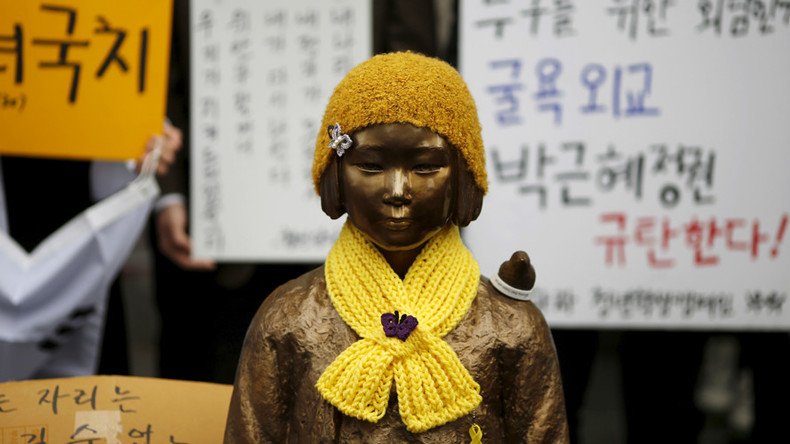Historic hurt: Korean 'comfort women' bus past Japanese embassy

Statues depicting World War II ‘comfort women’ are appearing on buses passing the Japanese embassy in Seoul, South Korea.
Dressed in traditional clothes, these female statues have been placed on five public buses passing the embassy in the Korean capital and will remain in place until September 30 to commemorate International Comfort Women Day.
Public buses installed with statues depicting wartime sex slaves begin service in #Seoul to commemorate #WWII victims pic.twitter.com/TItCHaBD8o
— CGTN (@CGTNOfficial) August 14, 2017
Up to 200,000 women, mostly from the Korean peninsula, but also from China, Taiwan and the Philippines, are estimated to have been forced into sexual slavery by the Japanese military during World War II.
Today there are just 37 comfort women still living in South Korea, all of whom are over 85 years of age. Nine of these women are living together in the House of Sharing in Gwangju City, Gyeonggi Province.
For many South Koreans the comfort women epitomise the abuses committed under Japanese rule.
“It is designed to remind South Koreans of suffering the women went through,” said Lim Jin-Wook, the president of Seoul-based Dong-A Transportation who organized the event.
“We wanted to urge people not to forget our painful history,” adding that the statues would be sent to other public venues for permanent display after their removal in September.
S. Korea sets up task force to review WWII #sex workers deal with Japan https://t.co/w881gJUOQu
— RT (@RT_com) July 31, 2017
Similar statues have also been placed outside the Japanese embassy in Seoul, as well as outside the Japanese Consulate in Busan. The South Korean government has announced plans to open a museum dedicated to comfort women.
In 2015, Japan and South Korea reached a landmark deal to "finally and irreversibly" resolve the decades-old issue, with Japan agreeing to give 1 billion yen ($9.1 million) in compensation to provide support to former comfort women and their families.
However, the South Korean public was still dissatisfied, feeling that Japan’s apology was not sincere.











